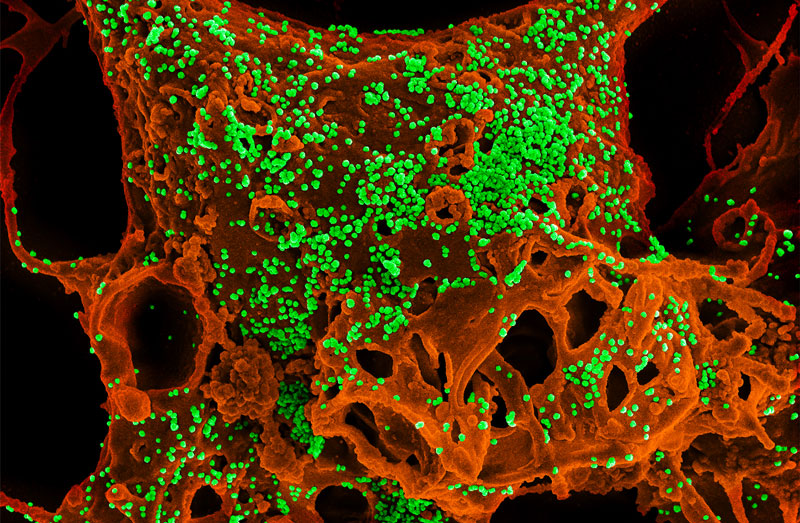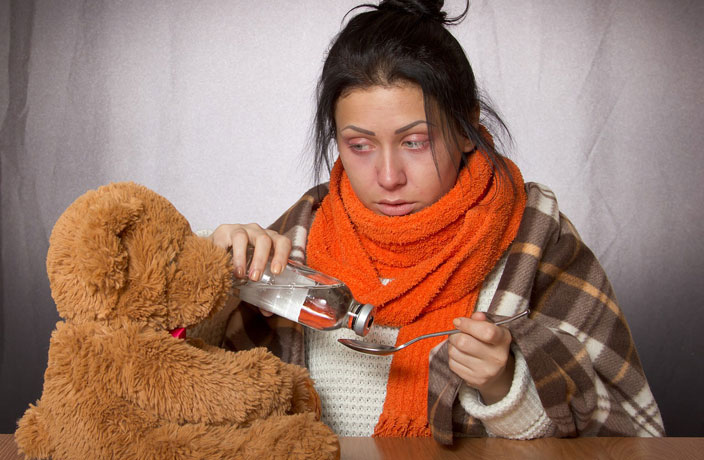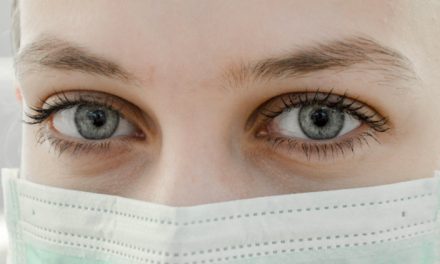If the novel coronavirus that has been spreading in China has you spooked, you’re not alone. Concerned about the new respiratory illness (and admittedly a tiny bit worried about catching it), we took to the good ol’ World Wide Web to see what precautions experts are recommending to avoid catching the disease.
The Symptoms

Image via Pixabay
Before we get to preventative measures, let’s nail down the symptoms. According to the Wuhan Municipal Health Commission, patients from the most recently confirmed cases of the new coronavirus have experienced coughing, chest pains, difficulty breathing and a fever. These cases were confirmed in Wuhan on January 18-19.
The US Centers for Disease Control and Prevention (CDC) notes on its website that Chinese authorities have additionally listed pneumonia as a symptom of the virus.
What is a Coronavirus?

Vero E6 cells stricken with Middle East respiratory syndrome (MERS) coronavirus. Image via Wikimedia
According to the US CDC, there are four main coronavirus subgroups: alpha, beta, gamma and delta. Since we aren’t medical professionals, we are going to default to the enlightened folks at the CDC for more detail:
“Human coronaviruses are common throughout the world. Seven different coronaviruses, that scientists know of, can infect people and make them sick. Some human coronaviruses were identified many years ago and some have been identified recently. Human coronaviruses commonly cause mild to moderate illness in people worldwide. Two newer human coronaviruses, MERS-CoV and SARS-CoV, have been known to frequently cause severe illness.”
Coronaviruses were first discovered back in the mid-1960s and are named for their ‘crown-like spikes,’ according to the CDC. The seven currently identified coronaviruses are: 229E, NL63, OC43, HKU1, MERS-CoV, SARS-CoV and the recently discovered 2019 Novel Coronavirus, 2019-nCoV.
How does the New Coronavirus Spread?

The Huanan Seafood Market in Wuhan, Hubei province, the illness’ alleged point of origin. Image via @广西新闻频道/Weibo
Unfortunately, how the disease is spread is currently unknown and researchers are working anxiously to provide an answer. The World Health Organization has reported that human-to-human transmission cannot be ruled out and it is still unclear which species of animal acted as the virus’ ‘reservoir’ at the Huanan Seafood Market (the illness’ alleged point of origin in Wuhan).
At present, there have been no reports of medical personnel being infected while treating people suffering from the new coronavirus, which would lead us to suspect that – if the disease is spreading human-to-human – it isn’t super contagious.
READ MORE: New Coronavirus Spreads to Over 130 in China, Death Toll Rises
How Can You Stay Protected?

Image via Pixabay
Again, since not a lot is known about how the virus is spread, it is difficult to offer specific measures that concerned people in China, Asia and beyond can take to avoid infection. However, here are some general tips from the Wuhan Municipal Health Commission:
-
Pay close attention to your personal hygiene (wash your hands, etc.)
-
Ensure that spaces that you are residing in have good indoor ventilation
-
Exercise regularly to maintain good physical health
-
Avoid large crowds if possible (this one might be a tad difficult if you live in any of China’s major cities or are traveling for Spring Festival)
-
Wear a mask if you are sick – or in the proximity of someone who has a cough – to avoid the spread of germs
-
Cover your mouth and nose if you are going to cough or sneeze, ideally with a paper towel (although the inside of your elbow will work in a pinch)
-
Seek medical attention as soon as you experience a fever, cough or other symptoms related to the new coronavirus
The World Health Organization (WHO) additionally suggests the following:
-
Thoroughly cook meat and eggs
-
Avoid unprotected contact with live wild and farm animals
Of course, the other basics also apply: Eat healthy, don’t smoke and avoid making out with sick people.
READ MORE:
[Cover image via Pixabay]



![[Art in May]: Yves Klein, Dunhuang, Mademoiselle Privé](https://www.life-china.com/wp-content/uploads/2019/07/1557138079-440x264.jpg)



Recent Comments